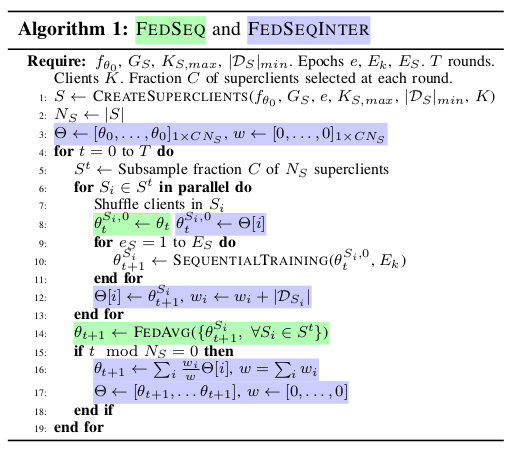Speeding up Heterogeneous Federated Learning with Sequentially Trained Superclients
Federated Learning (FL) allows training machine learning models in privacy-constrained scenarios by enabling the cooperation of edge devices without requiring local data sharing. This approach raises several challenges due to the different statistical distribution of the local datasets and the clients' computational heterogeneity. In particular, the presence of highly non-i.i.d. data severely impairs both the performance of the trained neural network and its convergence rate, increasing the number of communication rounds requested to reach a performance comparable to that of the centralized scenario. As a solution, we propose FedSeq, a novel framework leveraging the sequential training of subgroups of heterogeneous clients, i.e. superclients, to emulate the centralized paradigm in a privacy-compliant way. Given a fixed budget of communication rounds, we show that FedSeq outperforms or match several state-of-the-art federated algorithms in terms of final performance and speed of convergence. Finally, our method can be easily integrated with other approaches available in the literature. Empirical results show that combining existing algorithms with FedSeq further improves its final performance and convergence speed. We test our method on CIFAR-10 and CIFAR-100 and prove its effectiveness in both i.i.d. and non-i.i.d. scenarios.
PDF Abstract



 CIFAR-10
CIFAR-10
 CIFAR-100
CIFAR-100